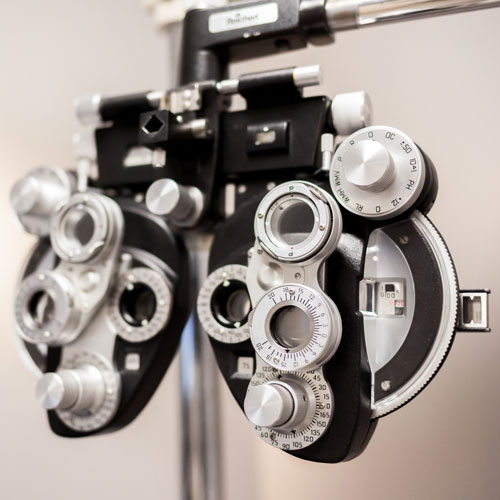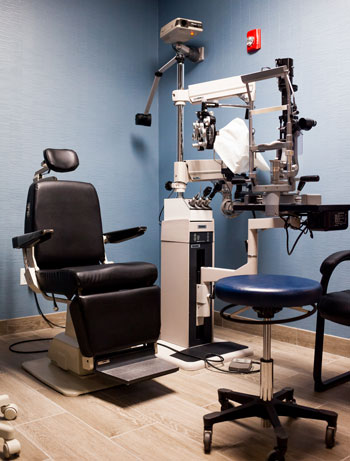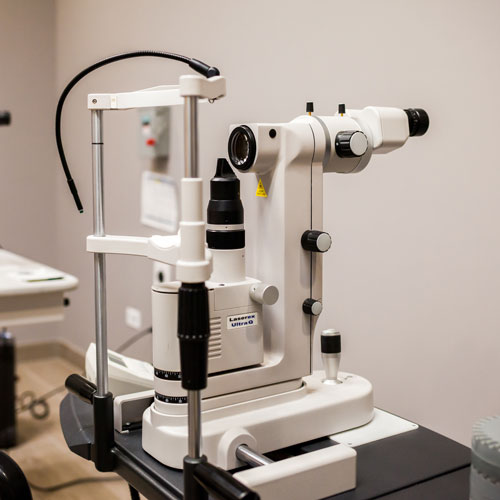Just like your car, your eyes need periodical maintenance checks to make sure everything is going as it should. Here at Family Eye Physicians, we stress the importance of preventive and routine eye care. Why? Because it can be the difference between vision and no vision. You use your eyes every day to complete a number of vital tasks, so it is important not to take them for granted. Read on to find out why eye exams are important, what you can expect during your eye exam, and how often you should have them done!
The Importance of Eye Examinations
 Many people don’t think much about their eye health until they notice something is wrong. Here at Family Eye Physicians, we are striving to change that! Your eyes are an essential part of your daily life, and without them, your life would be greatly impacted.
Many people don’t think much about their eye health until they notice something is wrong. Here at Family Eye Physicians, we are striving to change that! Your eyes are an essential part of your daily life, and without them, your life would be greatly impacted.
Eye examinations are more than just a precaution. Many eye diseases and conditions can occur without your knowledge. Serious conditions like glaucoma and diabetic retinopathy do not present symptoms until serious, in some cases irreversible, vision loss has occurred. In these cases, vision loss may have been prevented through early diagnosis and treatment.
During your eye examination, your doctor will do a thorough check of the structures in and outside of your eye. This comprehensive exam will catch most eye diseases or conditions before they have a chance to cause vision loss.
What Happens During an Eye Exam?
During your eye examination, your doctor will perform a number of tests and screenings to make sure your eyes are healthy. They will also ask you if you’ve experienced any concerning symptoms, if you have a family history of eye disease and if you have other health conditions that could impact your eye health. Your eye examination can take anywhere from 30 minutes to an hour depending on your eye health.
The different tests performed during your eye exam include:

- Visual Acuity. Visual acuity refers to how sharp your vision is. This is tested using a wall eye chart. Using this chart, your doctor can determine your visual acuity. If your vision is normal, it may be around 20/20. If it is reduced, the number will change (like 20/100). If your visual acuity is 20/100, it means you must be standing 20 feet away to read something that a person with normal vision could read at 100 feet.
- Eye Muscle Testing. This test is done to make sure your eyes are working well together. Your doctor will ask you to follow an object with your eyes. This test can uncover eye movement restrictions, weaknesses and tracking problems.
- Cover Test. This is another test to determine how well your eyes are working together. You will cover one eye at a time and you will be asked to focus on a distant or near object. You will then uncover your eye to see if it is also focusing on the object. If it is not, it could be a sign of strabismus or amblyopia (lazy eye).
- Retinoscopy. During this test, your doctor will use a retinoscope to test how well light refracts in your eyes. Your light refraction has a big impact on how well you see. Your doctor can tell if you have any common refractive errors like myopia, hyperopia, astigmatism and presbyopia.
- Slit Lamp Exam. Your doctor will use a device to examine the structures surrounding your eyes, as well as internal structures. This includes your eyelids, eyelashes, lens, cornea, iris, conjunctiva, and the anterior chamber. Cataracts can be diagnosed during this part of the exam.
- Tonometry. A tonometer tests the pressure inside of your eye. High eye pressure can be a sign of glaucoma.
- Dilated Eye Exam. Your doctor will use special eye drops to dilate your pupils. This can make your vision temporarily blurry. This allows your doctor to see inside of your eye. Your doctor will examine the retina and other internal eye structures. Retinal diseases can be diagnosed during this exam.
You may need someone to drive you home after your eye examination. Your eyes will still be dilated for around an hour after your exam, so be sure to wear UV protection sunglasses while outside. Your vision may be blurry for up to an hour. There is no pain during or after your eye examination.
How Often to Get Your Eye Examined
 How often you get your eyes examined greatly depends on your overall health and previous/current eye disease. Those at higher risk for eye problems are asked to schedule an eye examination once a year. For example, if you have diabetes or if you are over the age of 50, you should have an eye examination every year. If you already have an eye condition such as diabetic retinopathy or glaucoma, you may need to schedule exams multiple times per year so your doctor can keep track of progress. If you are young and healthy, you may schedule an eye exam every 2 to 3 years.
How often you get your eyes examined greatly depends on your overall health and previous/current eye disease. Those at higher risk for eye problems are asked to schedule an eye examination once a year. For example, if you have diabetes or if you are over the age of 50, you should have an eye examination every year. If you already have an eye condition such as diabetic retinopathy or glaucoma, you may need to schedule exams multiple times per year so your doctor can keep track of progress. If you are young and healthy, you may schedule an eye exam every 2 to 3 years.
Click here for more information on ocular allergy testing.
If you would like to schedule your eye examination with Family Eye Physicians, contact our Chicago office today! We look forward to helping you and your family maintain your eye health.
 708.636.9393
708.636.9393
